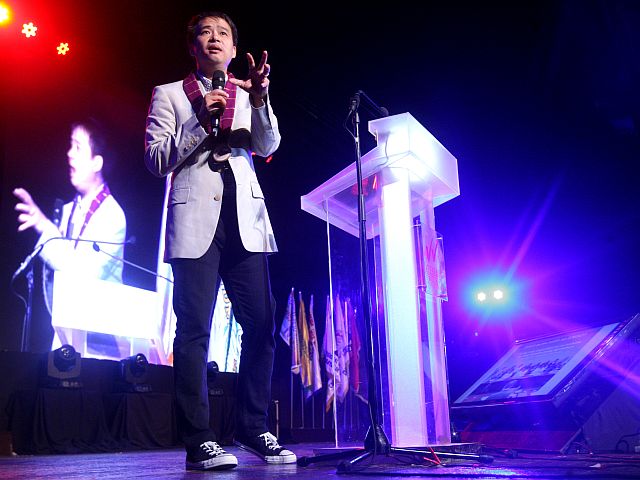
Senator Emmanuel Joel Villanueva, chairman of the committee on labor, employment and human resources development, discusses the challenges the government is facing in enforcing its anti-endo campaign during the Public Employment Services Office’s national congress in a Cebu City hotel (CDN PHOTO/TONEE DESPOJO).
Amid the Duterte administration’s thrust to rid the country of unjust contractualization practices, the challenge is big for the government to enforce reforms within its ranks.
Senator Joel Villanueva, chairman of the Senate Committee on Labor and Human Resources Development, said the government should take the lead if it would want the private sector to follow suit.
“If you want to force this issue on the private sector, we have to start in our own backyards,” he told reporters at the sideline of the 16th National Public Employment Service Office (Peso) Congress in Cebu City on Friday.
In previous committee hearings, Villanueva said it was revealed that the government is the number one job order violator with over 600,000 workers employed under the said scheme, 400,000 of which are in the local government units (LGU).
The Department of Public Works and Highways (DPWH) admitted to having around 20,000 job order employees, who are doing “regular” jobs, while the Department of Tourism (DOT) claimed to have at least 11,000 of these workers.
One issue that was raised in several consultations was that the local government units had their own laws regarding the employment of civil servants.
Villanueva said that they can’t implement a universal approach in ending contractualization across sectors because not all industries are the same.
Consultations
The senator said the committee is now consulting with the Civil Service Commission (CSC) and the Department of Labor and Employment (Dole) to address this issue, expecting recommendations from the said agencies by November this year.
President Duterte ran with a promise to rid the private sector of endo (end of contract), a practice of some companies which involves routinely ending worker contracts on the fifth month to avoid having their employees regularized, thus preventing them from enjoying labor benefits.
The Duterte administration clarified that they are not against contractualization per se and only those done “illegally.”
The Dole targets to regularize 50 percent of the contractual workforce in the country by the end of 2016 and the remaining 50 percent by December next year.
12K workers
Within Duterte’s first 100 days, Villanueva said 12,000 contractual workers had already been regularized nationwide.
On Thursday, following months of deliberation, the Senate labor committee completed a report on the proposal to amend the Labor Code which will be reviewed by a technical working group before being presented to the plenary.
Villanueva said among the committee’s proposals is the reclassification of employment statuses down to two — regular and probationary.
“Hopefully, by the end of the year, our dream of putting an end to the evils of contractualization or endo will become a reality,” said Villanueva.
Disclaimer: The comments uploaded on this site do not necessarily represent or reflect the views of management and owner of Cebudailynews. We reserve the right to exclude comments that we deem to be inconsistent with our editorial standards.
